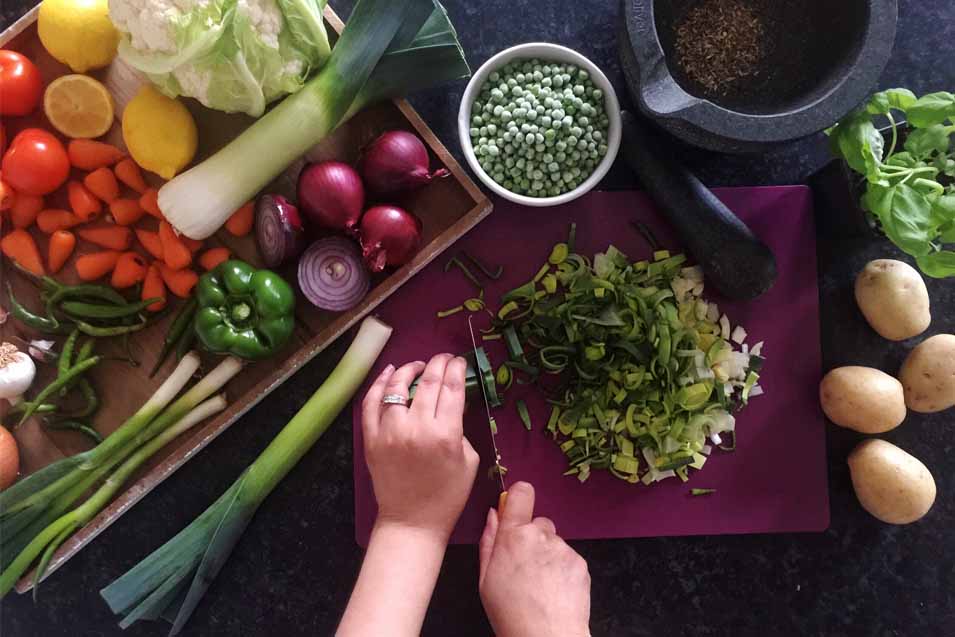
Toss Your Meal Plans and Delight in Your Go To Menus
A great go-to menu is enjoyable for the mind and satisfying for the body. The idea of creating a go-to menu stems from research that says we make over 200 food-related choices per day, yet the average person estimates this number to be just 15. This huge disparity suggests there’s a lot of unconscious choices interfering with our weight loss efforts.
This is especially true when we’re stressed, tired, bored, or lonely – the most common states when we’re particularly vulnerable to poor eating or overeating. With written or visual lists of compelling options, we can learn to navigate even our most challenging moments.
Here’s What You Need to Know
Think of your go-to menus as a pre-emptive eating style. You embark on your weight loss efforts with the best of intentions but when the choice points arrive, those intentions are often blindsided or sidelined.
You simply cannot rely on your rational, executive function in the beginning. When unconscious habits or emotionally-driven patterns are at work, your prefrontal cortex is offline. You won’t be as resourceful or be able to remember your meal or snack options. And in those addictive moments when your brain is completely hijacked, it won’t even occur to you that you have other options. So, get your go-to menus in place to support you.
- They can’t help you unless they’re listed and available: You already have a collection of breakfasts, lunches, dinners and snacks that you assemble or cook. But if your favourites are not listed and handy, with staples in your fridge or cupboard, the energy required to recall and prepare one of these options will be greater than the energy required to turn to junk food or fast food.2. List at least 7 options per meal or snack: That’s potentially one week before you have to cycle back through any of your options, which will keep them varied and fresh. Even long-held favourites can lose their lustre if you rely on them too often, leaving you to seek indulgences elsewhere. Consider building each meal or snack menu to at least 14 options over time.
3. Forget calories and portions – just focus on quality food: A balance of protein, fibre and fat per meal or snack is ideal to help you naturally eat less but any quality food will help to satiate you. Some processed food is okay when the situation and selection are limited but consuming something from a package with a long list of chemicals will ultimately leave you wanting for more.
4. Forget meal planning – just focus on your next meal: Having an idea of what meals you intend over the coming week is certainly helpful. Planning these down to the day and to the meal, however, can be too restrictive and interfere with your natural style and rhythm. A menu is exactly that, an opportunity to delight in your choices, where you need only anticipate one meal ahead.
Here’s What You Can Practice
Your go-to menus will guide and support you through many of those 200+ food-related choices per day but they’re really useful at two crucial times: when you’re ‘out and about’ and when you’re ‘in and within’.
Maybe you’re out running a bunch of energy-taxing errands or heading home after a particularly long and stressful day. Either way, that donut you just stumbled upon or that fast food place you’re about to drive by has just hijacked your thinking. A quick glance at your snack time or dinnertime go-to menus can be an effective reminder that you have an energy-boosting snack option in the glove compartment to get you through the next hour or an intriguing meal option waiting for you at home.
At other times maybe you find yourself at home, dwelling on thoughts of those treats in the cupboard. Without taking away your choice to have these, give first consideration to your go-to menus so you can address any hunger cues. You can then revisit the treats to see if the view has changed. Even if you still choose to have some, the amount will be tempered by the fact that you fueled your body first.
Here’s What You Can Expect
Go-to menus are designed to initially interrupt and eventually break your unwanted eating habits and patterns. For this reason, you want to be sure that any options that land on these lists are truly enjoyable for the mind and satisfying for the body, not just familiar or convenient.
Otherwise, you may need to cull your repertoire down to only those options that stimulate your anticipation and savouring of them. Only then can these become more compelling than your previous habits and patterns.
Kathrine Brown is an expert on binge eating, food addiction, body image and self-sabotage. Through her leading-edge Conscious Weight Loss®coaching process and podcast, she has helped thousands around the world live bigger lives in smaller bodies. Enjoy more wisdom and wit from her Wisdom Bites™ blog and The Three and a Half BIG Questions You Gotta Ask Yourself to Lose Weight free eguide.






































